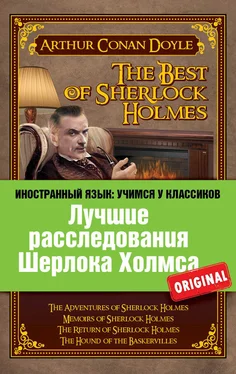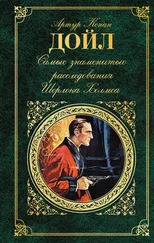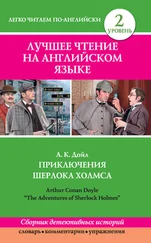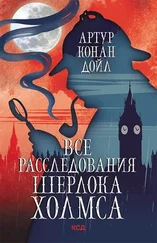188
Bertillon system of measurementsnamed after its inventor, French police official Alphonse Bertillon (1853–1914), aimed to reliably identify individuals by physical measurements of body parts. Bertillon system was widely used by European police forces during the late 19th century.
189
The big gamehunt refers to hunting dangerous and/or exotic animals, such as lions, tigers, leopards, elephants etc.
190
Reuters, a world known news agency, was founded in London in 1851 by Paul Julius Reuter. Reuter used telegraph, radio and even carrier pigeons to report the news to newspapers.
191
“Not let the grass grow under one’s feet”is a proverb that has the meaning of “not waste time by delaying doing something.”
192
The Lowther Arcadeis a toy-market gallery located at the Strand opposite Charing Cross Station.
193
carpet-bags – in the 19th century travelling bags made of carpet were very popular for their durability. It was believed that a good carpet-bag could last a lifetime.
194
coup-de-maître – a master stroke ( French )
195
Salle-à-mangeris a French term for a dining room at the train station.
196
Grosvenor Hotelis a luxury hotel located near Buckingham Palace.
197
The Reichenbach Falls – a range of five cascades on the River Aar in Bern canton, Switzerland. The Reichenbach Falls are among the highest waterfalls in the Alps.
198
the Honourable – the title is used before the names of children of peers
199
the Earl of Maynoothis a fictitious title of nobility. Maynooth, a village in County Kildare, Ireland, was the stronghold of the FitzGeralds, one of the noblest families of Ireland (the Earls of Kildare from the 14th century and the Dukes of Leinster from the 18th century).
200
Australian Colonies – in the 19th century Australia was divided in 6 British colonies: Queensland, New South Wales, Victoria, Tasmania, South Australia, and Western Australia. The Colonies formed a British Commonwealth in 1901.
201
Park Laneis running along the eastern boundary of Hide Park from Oxford Street on the north to Green Park on the south. In the 19th century Park Lane was a residential address for British aristocrasy.
202
Carstairsis a village in South Lanarkshire, Scotland.
203
a rubber of whist – whist is a trick-taking card game played by 4 players who play in 2 partnerships. A rubber is a full round of the game.
204
baritsu – misspelled “bartitsu,” a martial art developed in Britain during 1898–1902. Bartitsu combined elements of different Japanese and European fighting styles.
205
Lhassa is the ancient capital of Tibet and the residentional city of the Dalai Lama. In the19th century foreigners weren’t welcome in Tibet, especially the British. For an Englishman to travel in Tibet would have been an extremely difficult and dangerous task.
206
the head Llama – misspelled “Lama.” Sherlock Holms means the Dalai Lama, the head of the dominant branch of Tibetan Buddhism. Till 1959 the Dalai Lama was both spiritual and temporal ruler of the country.
207
Hansomcab was a two-wheeled cab for two passengers drawn by one horse. It got its name after Joseph Hansom who designed and patented the carriage that combined safety with speed.
208
I trust that age doth not wither nor custom stale my infinite variety – it’s a paraphrase of William Shakespeare’s “Antony and Cleopatra,” Act II, scene 2: “Age cannot wither her, nor custom stale / Her infinite variety....”
209
garroteris someone using garrote, a weapon (most often a chain, cord or wire) used for strangling a person
210
Jew’s harpis a mouth-harp
211
‘journeys end in lovers’ meetings,’ – it’s a quotation from William Shakespeare’s “Twelfth Night” (Act II, scene 3)
212
shikari is a native professional hunter in India
213
1st Bengalore Pioneers – a fictional regiment of the British Indian Army
214
Jowaki Campaign(1877–1878) is an expedition of the British Indian Army against Pathan tribes inhabiting the mountains on the Peshawar border of the British India.
215
Afghan Campaignor the Second Afghan war aka Second Anglo-Afghan war (1878–1880) was a part of confrontation of British Empire and Russian Empire in the region. It was ended by the Treaty of Gandamak; the British forces withdrew from Afghanistan but Britain gained control over its international affairs.
216
Charasiab (despatches), Sherpur, and Cabul – Holmes means battles of Charasiab, Sherpur, and Cabul fought during the Second Anglo-Afghan war.
217
the Scotland Yard Museum – the Prisoner Property Act of 1869 authorized the retention of prisoners’ property in order to help the police to study crime and criminals. The collection of criminal items formed the Scotland-yard Museum aka Black Museum that came into existence in 1874–1875.
218
Freemason(or Mason) is a member of the secret fraternal order of Free and Accepted Masons. Originated in Middle Ages from the guilds of stonemasons that built cathedrals and castles, Freemasonry is now the largest worldwide secret society.
219
Lower Norwood(now West Norwood) is a residentional suburb of South London, part of the London Borough of Lambeth.
220
The Daily Telegraphis a large format daily newspaper founded in 1855.
221
London Bridge Stationis a railway station in Southwark, London. It is one of the oldest stations of the London railway.
222
Blackheathis a suburb of South-East London, part of the London Borough of Lewisham.
223
The Anerley Armsis a real pub (former railway hotel) still in existance situated in Anerley London Borough of Bromley.
224
Manor – in the Middle Ages “manor” was a legal term denominating an estate in land that entitled a right to hold a court. In the 19th century “manor” became the name for an old house of a landlord with a great area of land around it.
225
The Jubileehere refers to The Diamond Jubilee of Queen Victoria (22 June 1897) that marked the 60th anniversary of Her Majesty’s reign.
226
Liverpool Street – Liverpool Street Station (aka London Liverpool) opened in 1847 served as London terminus for the London – Norwich line of the Great Eastern Railway.
227
East Anglia is a traditional region in the East of England. It includes counties Norfolk and Suffolk, parts of Essex and Cambridgeshire. The name derives from the Anglo-Saxon kingdom of the East Angles.
228
The German Oceanrefers to the North Sea (a part of the Atlantic Ocean located between the UK, France, Belgium, Netherlands, Germany, Denmark, Sweden and Norway). The North Sea provided a waterway access to the British Isles for European conquerors (Germanic tribes of Angles, Saxons and Jutes among them) and traders for ages. It was known as the German Ocean till the World War I when the name became politically unacceptable in the UK.
229
squire – initially a mediaeval term “squire” referred to a page-boy of a knight, and later to a landlord in feudal system. In Victorian Britain squires were landlords who lived in their manors but hadn’t any feudal rights. The word was also a polite form to address an unfamiliar gentleman.
Читать дальше
Конец ознакомительного отрывка
Купить книгу












